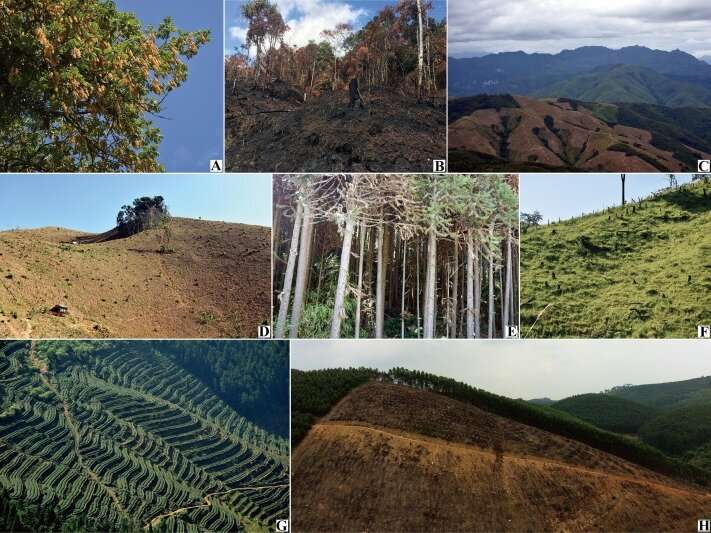This article has been reviewed according to Science X's editorial process and policies. Editors have highlighted the following attributes while ensuring the content's credibility:
fact-checked
peer-reviewed publication
trusted source
proofread
Afforestation may affect widespread sampling deficiency in plant collections

The restoration of artificial forests is likely to be among the most effective strategies for eliminating regional poverty through economic growth and possibly the best approach to limiting rising CO2 concentrations across the globe. However, the contention that afforestation is affecting the historical records of plants is a subject that deserves attention.
In a study published in Forest Ecology and Management, researchers from the Xishuangbanna Tropical Botanical Garden (XTBG) of the Chinese Academy of Sciences used big data to map the potential artificial and natural tree coverage of the historical and revisited records of the tree genus Engelhardia.
The researchers conducted a careful and detailed survey of these typical plants in tropical and subtropical Asia. They evaluated the records of the locations and found more than 1,000 records of Engelhardia across the most distribution regions. Almost 46% of the recorded locations where the plants historically existed have vanished. During the field investigations, they found that many recorded locations have been transferred to artificial forests.
Their results demonstrate that the artificial forests have caused a widespread deficiency in the diversity of plant collections. This finding has serious implications for the disappearance of historical specimens.
Their results show that the boosting of artificial forests has slowed down climate change through global tree restoration. However, the impact of artificial forests on the in situ species is urgent.
"Although the climate change and economic growth get benefits from the restoration of artificial forests, the benefits are inadequate when the accurate records in plant collections are considered for plant diversity. We thus have to emphasize the passive factors of artificial forests that the recorded species disappearance and/or shifts of the biodiversity patterns are blinded by the brightness of the afforestation," said Meng Honghu of XTBG.
More information: Yu Zhang et al, Blinded by the bright—Afforestation is affecting widespread sampling deficiency in plant collections, Forest Ecology and Management (2023). DOI: 10.1016/j.foreco.2022.120765
Journal information: Forest Ecology and Management
Provided by Chinese Academy of Sciences





















